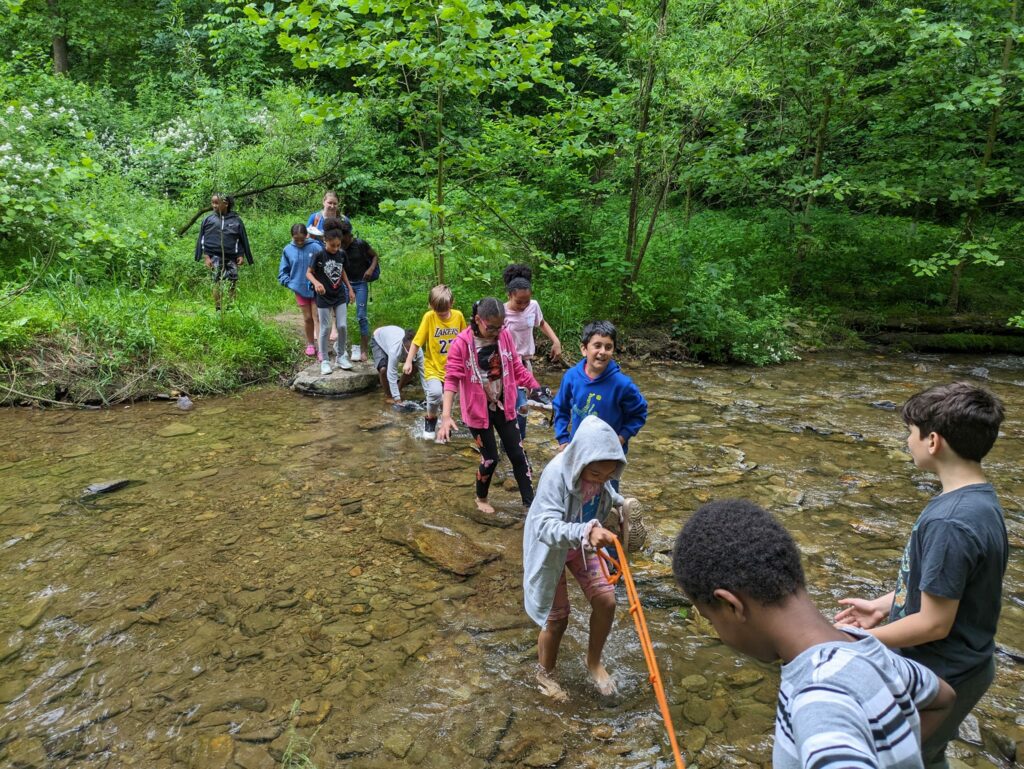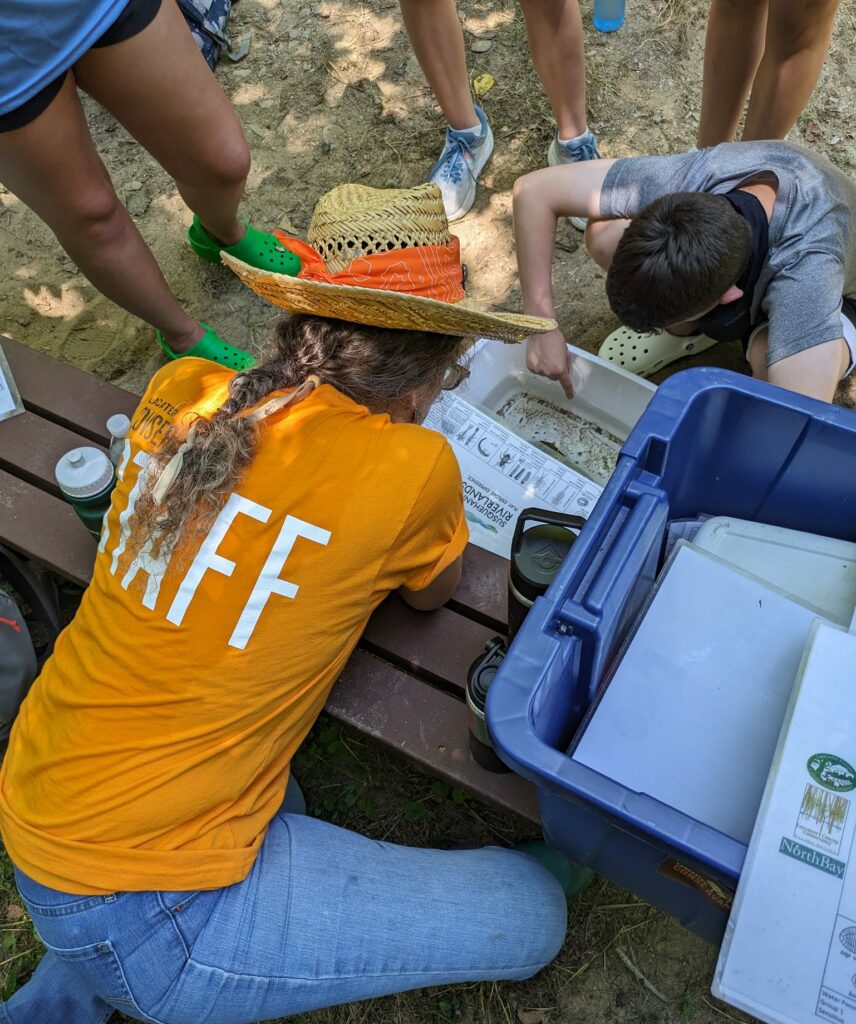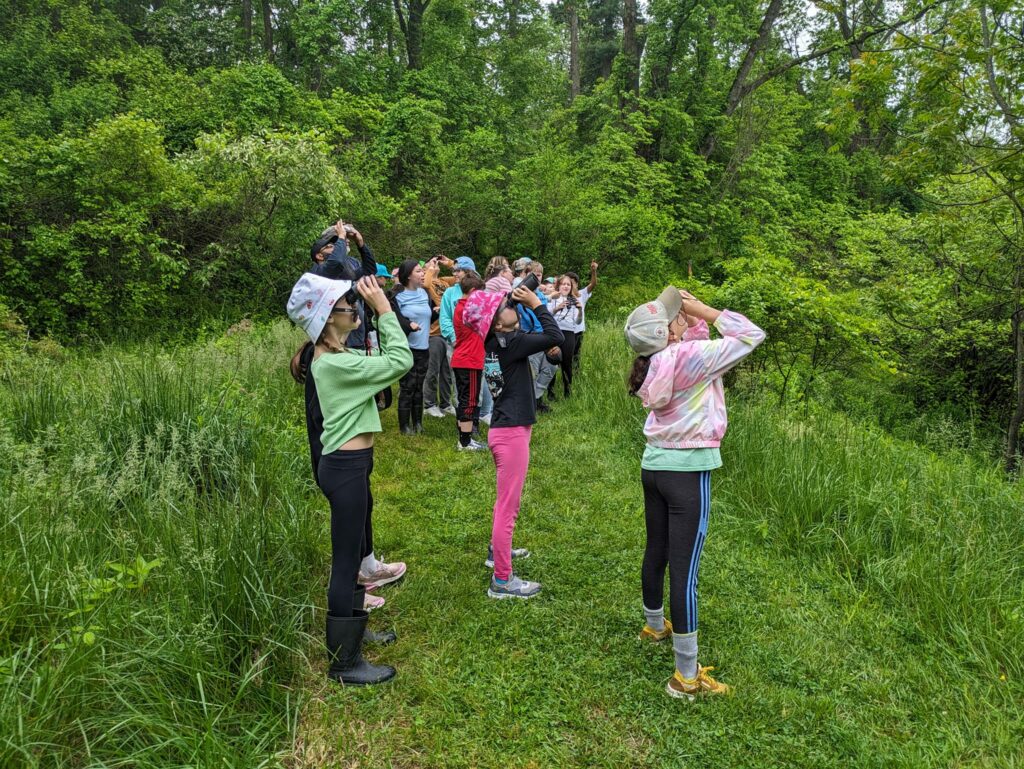By Peggy Eppig, Environmental Educator

Smith-Wade-El Elementary School students visit Climbers Run (Photo by Peggy Eppig)
On any given Wednesday throughout the school year, rain or shine, you might find a crowd of students making their way through the woods or meadows at Climbers Run Nature Center or Wizard Ranch Nature Preserve. These young folks are exploring, investigating, and interpreting what they’ve discovered with the help of a Lancaster Conservancy educator. In the spring of 2024, we engaged over 1,000 students in conservation education on our nature preserves.
While most students are excited to be out of the classroom for a day, there are some for whom the outdoors is their classroom. They just know that working outdoors is what they want to do with their futures. They are the next generation of conservationists.
Lancaster Conservancy’s school education program provides conservation education in forestry, stream monitoring, and ecological restoration. Students may participate in scientific surveys, help remove invasive plant species, or learn to “read” a forest and decide how to address specific forest health needs. At the end of each visit, we talk about conservation careers and answer questions from those students who want to know more – students who are thinking seriously about high school, college, or technical school courses that will help prepare them for a conservation career pathway.

Students study stream lift (Photo by Peggy Eppig)
Students with interests in conservation as a career often single out specific activities that really engage their interests. From learning to survey seasonal bird populations to calculating forest canopy cover for stream protection, we are sure to encourage interested students to get more involved in our or other local conservation organizations’ citizen science programs, and we aim to connect them to the people and communities where vital conservation work is happening.
Recently on a really hot day, I met a student who had attended a stream survey workshop with his high school biology class. He was interested in learning how benthic life of the stream is affected by low water and high temperatures. He had already picked out his senior capstone project in his junior year and was getting a jump start with data collection for how to manage cold water fisheries in a warming region! He said it was a visit to Climbers Run last year that had inspired his capstone and, he said hopefully, “maybe a job in conservation science around preserving native brook trout habitat.”
Our conservation education school programs are place-based with a focus on the needs, issues, and flora/fauna of our region. Every experience offers an opportunity for students to engage in stewardship, to learn what it means to be a steward of the land. In addition, Lancaster Conservancy offers teachers professional development through the Leopold Education Project, an excellent workshop on conservation ethics and stewardship practices for the classroom, schoolyard, and local landscape.
Our conservation education program aligns with Pennsylvania’s STEELS (Science, Technology, Engineering, Environmental Literacy and Sustainability) guidelines. Our education staff and volunteers are integral for providing well-designed and guided learning opportunities for both students and adults. Our goal is to increase the number of students who appreciate, value, and want to help sustain and restore our forests, waters, and wildlife now and in the future.

Donegal Intermediate School students visit Wizard Ranch Nature Preserve (Photo by Peggy Eppig)
If you teach intermediate and/or high school students and would like to schedule a Wednesday field visit to a Lancaster Conservancy nature preserve, please email peppig@lancasterconservancy.org and we can work together to develop a great conservation education experience that meets your curriculum needs and that sparks the conservation passion in your students.
